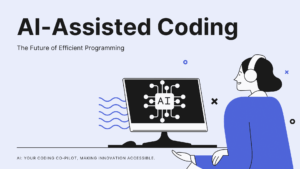1: Revolutionizing Healthcare
Healthcare has undergone a transformative journey with the integration of Artificial Intelligence (AI), leading to unprecedented advancements in diagnosis, treatment, and patient care. In this section, we’ll explore how AI is reshaping healthcare delivery, along with its advantages, disadvantages, and impact on human life.
Advantages:
- Enhanced diagnostic accuracy and early disease detection
- Personalized treatment plans based on patient data analysis
- Streamlined administrative tasks, reducing healthcare costs
Disadvantages:
- Privacy concerns regarding the storage and use of sensitive medical data
- Potential for algorithmic bias in diagnosis and treatment recommendations
- Job displacement for certain healthcare roles due to automation
Impact on Human Life:
- Improved patient outcomes and quality of care
- Increased accessibility to healthcare services through telemedicine and AI-powered diagnostics
- Ethical considerations regarding patient privacy and equitable access to AI-driven healthcare solutions
2: Predicting Financial Trends
The finance industry has witnessed a paradigm shift with the advent of AI, enabling more accurate predictions of market trends and investment opportunities. In this section, we’ll explore the role of AI in financial forecasting, its advantages, disadvantages, and impact on human life.
Advantages:
- Enhanced accuracy in predicting market trends and investment opportunities
- Improved risk management strategies for financial institutions
- Increased efficiency in trading and portfolio management
Disadvantages:
- Overreliance on AI-generated predictions may lead to market volatility
- Potential for algorithmic biases in financial decision-making
- Ethical concerns surrounding the use of AI in high-frequency trading and market manipulation
Impact on Human Life:
- Potential for improved financial decision-making and investment returns
- Increased access to financial services and products through AI-driven platforms
- Challenges in ensuring market stability and preventing systemic risks associated with AI-driven trading algorithms
3: Assisting Law Enforcement
Law enforcement agencies are leveraging AI-powered technologies to enhance crime detection and prevention efforts, ushering in a new era of policing. In this section, we’ll delve into the application of AI in law enforcement, its advantages, disadvantages, and impact on human life.
Advantages:
- Improved crime detection and prevention through predictive analytics
- Enhanced efficiency in analyzing large volumes of data for investigative purposes
- Increased safety for law enforcement personnel through AI-powered surveillance technologies
Disadvantages:
- Potential for privacy violations and surveillance overreach
- Risk of algorithmic bias in identifying suspects and predicting criminal behavior
- Ethical concerns regarding the use of AI in lethal autonomous weapons systems
Impact on Human Life:
- Enhanced public safety and crime prevention measures
- Potential for wrongful arrests or convictions due to algorithmic errors or biases
- Ethical dilemmas surrounding the use of AI in law enforcement and the balance between security and civil liberties
4: Shaping the Future of Education
The landscape of education is evolving with the integration of AI, offering personalized learning experiences and transforming teaching methodologies. In this section, we’ll explore the impact of AI on education, its advantages, disadvantages, and implications for human life.
Advantages:
- Personalized learning experiences tailored to individual student needs
- Increased accessibility to educational resources through online platforms and AI-driven tutoring systems
- Enhanced teacher productivity through automated grading and lesson planning tools
Disadvantages:
- Potential for widening educational inequalities based on access to AI-powered learning technologies
- Challenges in maintaining student privacy and data security in online learning environments
- Concerns about job displacement for educators due to automation of teaching tasks
Impact on Human Life:
- Improved educational outcomes and lifelong learning opportunities
- Increased accessibility to quality education for marginalized communities
- Ethical considerations regarding student data privacy and the role of AI in shaping educational content and assessments
5: Sparking Ethical Debates
As AI technologies continue to advance, they raise complex ethical questions that demand careful consideration. In this section, we’ll explore the ethical implications of AI development and deployment, along with its advantages, disadvantages, and impact on human life.
Advantages:
- Increased efficiency and productivity in various industries through automation
- Improved decision-making processes based on data-driven insights
- Potential for solving complex societal challenges, such as healthcare and climate change
Disadvantages:
- Job displacement and economic inequality resulting from automation
- Ethical concerns surrounding privacy, bias, and the use of AI in lethal autonomous weapons
- Risks of algorithmic discrimination and perpetuation of existing societal biases
Impact on Human Life:
- Enhanced convenience and quality of life through AI-driven technologies
- Challenges in ensuring fairness, accountability, and transparency in AI systems
- Need for robust ethical frameworks and regulatory oversight to mitigate risks and promote responsible AI development
6: Revolutionizing Customer Service
AI-powered chatbots and virtual assistants have transformed the way businesses interact with their customers, offering personalized and efficient support round the clock. In this section, we’ll explore the impact of AI on customer service, its advantages, disadvantages, and implications for human life.
Advantages:
- 24/7 availability for customer inquiries and support requests
- Personalized recommendations and tailored experiences based on customer data
- Increased efficiency and cost savings for businesses through automation of repetitive tasks
Disadvantages:
- Potential for impersonal interactions and reduced customer satisfaction
- Risks of data privacy breaches and misuse of customer information
- Challenges in resolving complex issues and handling sensitive inquiries without human intervention
Impact on Human Life:
- Improved customer experiences and satisfaction through seamless and responsive support
- Concerns about job displacement for customer service representatives due to automation
- Ethical considerations regarding the use of AI in handling sensitive customer data and inquiries
7: Transforming the Automotive Industry
The automotive industry is undergoing a revolutionary transformation with the integration of AI-driven technologies, paving the way for safer, more efficient, and autonomous vehicles. In this section, we’ll explore the impact of AI on automotive innovation, its advantages, disadvantages, and implications for human life.
Advantages:
- Enhanced safety features and accident prevention through AI-powered driver assistance systems
- Improved traffic flow and congestion management with predictive analytics and smart routing
- Potential for autonomous vehicles to revolutionize transportation accessibility and mobility for all individuals
Disadvantages:
- Ethical dilemmas surrounding the programming of autonomous vehicles and decisions in life-threatening situations
- Risks of cybersecurity threats and hacking vulnerabilities in connected vehicles
- Concerns about job displacement for professional drivers and the broader automotive workforce
Impact on Human Life:
- Reduced road accidents and fatalities through advanced driver assistance technologies
- Increased accessibility to transportation for individuals with mobility challenges or disabilities
- Socioeconomic implications of job displacement and workforce transitions in the automotive industry
8: Contributing to Climate Change Solutions
Addressing climate change requires innovative solutions, and AI technologies have the potential to play a significant role in mitigating environmental risks and promoting sustainability. In this section, we’ll explore the impact of AI on climate change solutions, its advantages, disadvantages, and implications for human life.
Advantages:
- Optimization of energy usage and resource allocation through AI-driven predictive analytics
- Early detection and monitoring of environmental hazards, such as wildfires and natural disasters
- Advancements in renewable energy technologies and carbon footprint reduction efforts with AI-driven innovations
Disadvantages:
- Ethical considerations regarding the environmental impact of AI hardware production and energy consumption
- Risks of algorithmic biases in climate modeling and policy recommendations
- Challenges in ensuring equitable access to AI-driven climate change solutions for vulnerable communities
Impact on Human Life:
- Enhanced resilience to climate-related disasters and improved disaster response strategies
- Opportunities for sustainable development and green innovation through AI-driven solutions
- Ethical imperative to prioritize environmental stewardship and social equity in AI-driven climate change initiatives
9: Reshaping the Retail Landscape
Retailers are harnessing the power of AI to revolutionize the shopping experience, offering personalized recommendations, streamlined logistics, and innovative marketing strategies. In this section, we’ll explore the impact of AI on the retail landscape, its advantages, disadvantages, and implications for human life.
Advantages:
- Personalized shopping experiences and targeted product recommendations based on customer preferences
- Optimization of inventory management and supply chain logistics through AI-driven predictive analytics
- Enhanced marketing effectiveness and customer engagement with AI-powered advertising and sales strategies
Disadvantages:
- Risks of privacy violations and data breaches associated with the collection and use of customer data
- Potential for algorithmic biases in product recommendations and pricing strategies
- Concerns about job displacement in the retail sector due to automation of routine tasks
Impact on Human Life:
- Improved convenience and satisfaction for consumers through personalized shopping experiences
- Challenges in preserving consumer privacy and data security in AI-driven retail environments
- Socioeconomic implications of workforce transitions and job displacement in the retail industry
10: Enhancing Cybersecurity
As cyber threats continue to evolve, AI technologies are increasingly being deployed to bolster cybersecurity defenses and protect against malicious attacks. In this section, we’ll explore the impact of AI on cybersecurity, its advantages, disadvantages, and implications for human life.
Advantages:
- Improved threat detection and response capabilities through AI-driven anomaly detection and behavioral analysis
- Enhanced automation of routine security tasks, freeing up human analysts to focus on more complex threats
- Increased resilience against sophisticated cyber attacks through adaptive and proactive defense mechanisms
Disadvantages:
- Risks of AI-powered cyber attacks and adversarial machine learning techniques
- Challenges in ensuring the transparency and interpretability of AI-driven cybersecurity solutions
- Concerns about the potential for unintended consequences and system vulnerabilities in AI-driven defense systems
Impact on Human Life:
- Strengthened protection of personal and sensitive information against cyber threats and data breaches
- Opportunities for greater collaboration and information sharing among cybersecurity professionals through AI-driven threat intelligence platforms
- Ethical considerations regarding the responsible use of AI in cybersecurity and the protection of individual privacy rights
Conclusion:
In conclusion, the integration of AI into various aspects of human life brings both opportunities and challenges. While AI technologies have the potential to enhance efficiency, productivity, and innovation across industries, they also raise significant ethical, social, and economic considerations that must be addressed. By understanding the advantages, disadvantages, and overall impact of AI on human life, we can work towards harnessing its full potential while mitigating risks and ensuring responsible deployment for the benefit of society as a whole.


